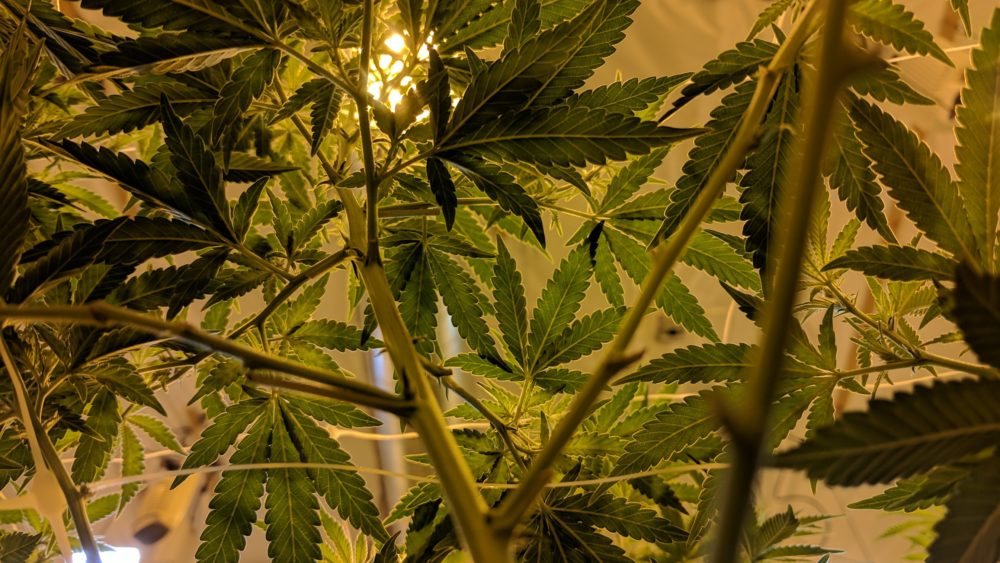
The cannabis industry is growing at a fantastic rate. Innovative products and business are continuing to pop up despite the threat of monopoly. Lately, we’ve seen the term “craft cannabis” frequently used within the media and the industry. There is no doubt that growing quality cannabis is truly a craft, and understanding the genetics is both an art and a science. With generations of hemp and cannabis farmers growing both indoors and outside in the Kootenays and the lower mainland, BC has clear strong roots in the growing community, guaranteeing the craft will not soon be forgotten.
However, with corporate interests growing, some fear that “The age of artisanal marijuana might have already peaked, and the era of corporate pot [is] just beginning“. Can corporate cannabis ever be considered craft, or are the two mutually exclusive? In this post, we look at what “craft cannabis” means to the community of cannabis patients and connoisseurs.

What does it really mean when you describe cannabis as “craft”? One article we found on Roottie suggests that craft cannabis means more patience, care, and attention to detail during the process of growing and curing the product. The article also lists a few other defining characteristics including:
Unsure of where these defining characteristics came from, we sought to find out what “craft cannabis” really meant to the people that make up the cannabis community. So we conducted our own survey and asked a community of cannabis patients and connoisseurs what “craft cannabis” meant to them.
Here are the results from the 44 responses we collected:
It seems like having independent growers that are not corporate-based is a critical factor when it comes to defining “craft cannabis” for our community members. This is followed by organic methods, small batches, and then unique strains. One community member suggested that breeding CBD strains could be considered “craft” as it requires employing the best practices for strain development, using top nutrients, and drying/curing methods which all come from years of experience. Many suggested it simply implied small scale non-corporate grows akin to “mom and pop” shops.
From this data, we can see that the primary concern of the cannabis community is maintaining the integrity and quality of the product by keeping operations small and independent ensuring better control for quality. There didn’t seem to be much demand for outdoor growing, but rather more concern for contamination via chemicals and pesticides used. This definition doesn’t seem far off from the accepted definition of craft breweries which are usually small companies with an independent streak, but the results also did not align entirely with the characteristics outlined in the Roottie article.
There is a farmer’s market kind of vibe to the definition of “craft cannabis” provided by the community. It paints a picture of passionate growers giving individual attention to each plant while committed to organic methods, thus yielding a more potent flower that is richer in delicious terpenes. With such a meticulous and holistic approach, growers would easily be able to control the genetic evolution of their strains, eventually developing signature strains, much like the unique recipes of craft beer breweries.
Perhaps it is possible for corporate cannabis to achieve “craft” quality and status, but that would depend greatly on how they approach their growing operation. Hopefully, investors interested in dipping their toes into the cannabis industry don’t overlook the importance of the craft for the sake of cultivating the next “cash crop”. It would be a shame if “craft” became another marketing buzzword. We encourage anyone looking to invest in cannabis to seek education from the experts who have been doing this for decades, the ones who have perfected the art before politics could catch up.
We would love to see “craft” cannabis maintain the wholesome meaning of our survey responses, and that those who claim these standards do so honestly by upholding the best practices. In the end, perfecting the craft is the best way to yield a product that is both high quality and authentic, and as our survey responses suggest, the cannabis community is quite keen on authenticity.
MORE FROM THE BLOG





WAIVER & RELEASE (the “Release”)
This event is conducted by CannaReps Consulting Ltd. (“CannaReps or Company”). Please read and submit below.
I am an attendee at an event hosted by CannaReps (the “Workshop“). I release CannaReps from any and all liability, claims, demands, actions and causes of action whatsoever arising out of or related to any loss, damage or injury, including death, that may be sustained by me while participating in the Workshop.
I understand and agree that:
CONFIDENTIALITY
Any confidential or proprietary information or material relating to the Company’s operations or business which I obtain from the Company or its officers, employees, agents, suppliers or customers or otherwise by virtue of my participation with the Company or by the Company’s predecessor. Confidential or proprietary information or material includes, without limitation, the following types of information or material, both existing and contemplated, regarding the Company or its parent, affiliated or subsidiary companies: corporate information, including contractual licensing arrangements, plans, strategies, tactic, policies, resolutions, patents, trademarks, printed or digitized materials, handouts and brochures. Including any marketing information including sales, investment and product plans, customer lists, strategies, methods, customers, prospects and market research data. Including trade secrets; technical information, including drawings, designs, personal information (the “Confidential Information”).
I understand that the copyright and proprietary interest of any material provided to me belongs to CannaReps. All shared experiences from the Workshop are to remain confidential and private. I agree not to disclose any of the information learned during the Workshop outside of the Workshop except with others who attend the Workshop. I will not use any audio or video recording equipment during the Workshop, unless CannaReps approves of the recording and filming by providing prior written consent. I understand that any audio or video recording made during the Workshop is the property of CannaReps. I will not use CannaReps’ information for business or commercial purposes, without first obtaining the prior written consent of CannaReps.
INTELLECTUAL PROPERTY
I understand, acknowledge and agree that all copyright, trademarks, trade secrets, intellectual property rights, and any other rights arising from any designs, and all of the work products and materials conceived, developed or created by the CannaReps and any rights ancillary thereto (collectively, “Intellectual Property Rights”) which were solely or jointly with others, conceives, designs, creates, derives, develops or makes in the course of or in connection with the work with CannaReps shall belong solely to CannaReps. If you haven’t already, you shall promptly disclose to CannaReps in writing any and all Intellectual Property Rights, conceived, created, derived, developed or made in the course of or otherwise in connection with my participation with CannaReps, whether alone or with others, and whether during work shop hours or through the use of facilities and properties of CannaReps.
INDEMNITY
I agrees to indemnify and hold harmless CannaReps, its officers and directors, employees and its affiliates and their respective successors and assigns and each other person, if any, who controls any thereof, against any loss, liability, claim, damage and expense whatsoever (including, but not limited to, any and all expenses whatsoever reasonably incurred in investigating, preparing or defending against any litigation commenced or threatened or any claim whatsoever) arising out of or based upon any false representation or warranty or breach or failure by me to comply with any covenant or agreement made by me herein or in any other document furnished by me to any of the foregoing in connection with this transaction.
CONSENT
Notwithstanding the immediately preceding paragraph, I consent to and grant CannaReps, the Workshop, and its assignees, the right to photograph and record me, my name, voice, appearance and likeness and other material furnished by me for use on trusted online media which include, but are not limited to, their website and social media pages. My hereby release said matter in perpetuity to CannaReps without prejudice and acknowledge that this consent is freely given without expecting compensation.
By submitting my email address below, I agree to receive electronic communication from CannaReps including personal course information, news, updates and promotions regarding CannaReps’ products. I understand that I can withdraw my consent at any time.
PRIVACY POLICY
Protecting your privacy is important to CannaReps. This Privacy Policy (“Privacy Policy”) set outs the ways in which we use your information and how we ensure its protection.
CannaReps will only collect personal information (“Information”) that will allow us to provide, enhance, market or improve our events and services. Information is collected by means of registration for any CannaReps sponsored event or service. Information collected may include name, age, gender, address, email address, payment information, and geographical information.
CannaReps may share Information. CannaReps retains the right to share Information and other statistics with our partners, prospective advertisers, and other third parties for the purposes of improving, protecting, enhancing, and promoting our events and services. CannaReps may also disclose information to our affiliates, agents, contractors, and service providers in order to facilitate the functioning and maintenance of our events and services. We will not sell any information to advertisers or other third parties.
This Privacy Policy only covers the treatment of Information and other non-identifiable information gathered by CannaReps. This Privacy Policy does not apply to the practices of any third-party services. CannaReps does not take responsibility for the content or privacy policies of any third parties. CannaReps recommends that you review the privacy policies of any third-party service providers or events you access, use, or register for through our events or services.
This Privacy Policy has been established to help you understand our commitment to protecting your privacy. CannaReps reserves the right, at any time, to change or replace any portion of our Privacy Policy. You will be notified of any changes, if we believe, they materially impact your experience at our events or services. Continued use of our services after any change to the Private Policy constitutes an acceptance of those changes.
By submitting this Release and providing Information during the registration process, including the Exhibitor’s Agreement, you consent to the collection and use of your Information for these purposes.
If you have any questions or concerns please email us at info@cannareps.ca.